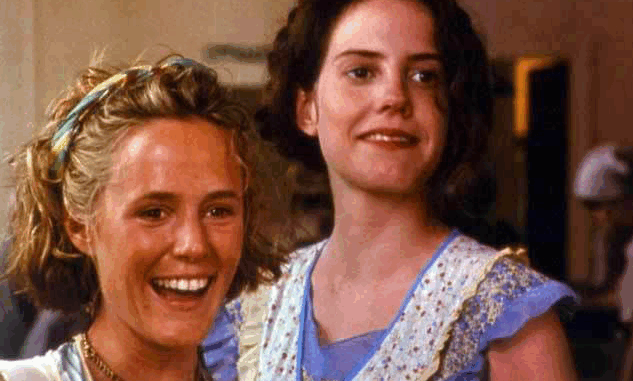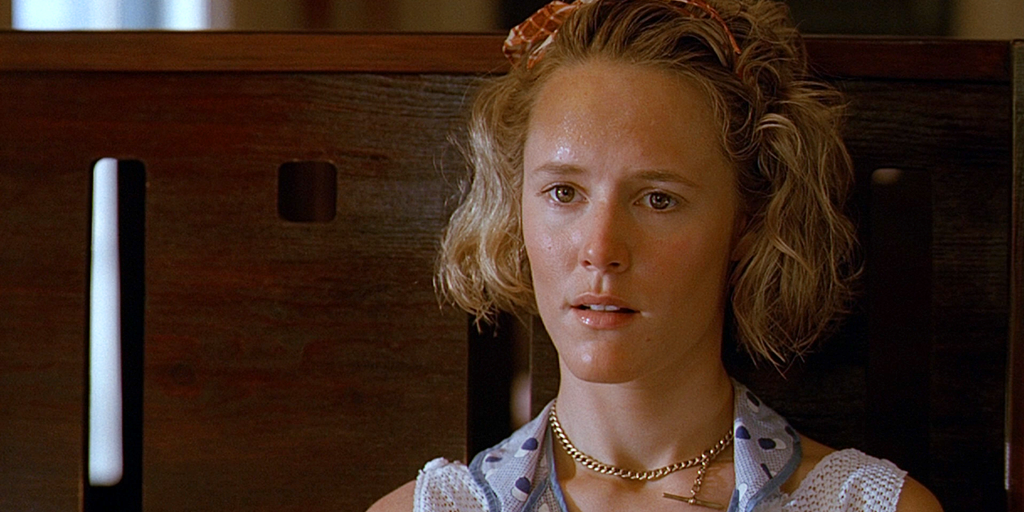
The Quiet Power of a Southern Story
At first glance, Fried Green Tomatoes might seem like a quiet, nostalgic Southern film about small-town life. But beneath the gentle drawl and vintage aesthetics lies a deeply moving narrative about empowerment, female friendship, and personal transformation. Decades after its 1991 release, the film continues to captivate audiences—not through spectacle, but through soul.
Female Friendship as a Revolutionary Force
At the heart of the film is the extraordinary bond between Idgie Threadgoode and Ruth Jamison—two women who defy the expectations of their time. Their relationship, often interpreted as romantic or deeply platonic depending on the viewer’s lens, breaks traditional boundaries. In an era and place where women were expected to conform, they built a life together on their own terms.
Their strength doesn’t come from loud rebellion but from quiet resilience: running a café, raising a child, and standing up against injustice. The authenticity of their connection reminds viewers that friendship—true, loyal, life-changing friendship—is one of the most radical forces for good.
Evelyn Couch’s Journey: From Invisible to Invincible

Equally compelling is the modern-day narrative of Evelyn Couch, portrayed by Kathy Bates. A timid, neglected housewife, Evelyn begins to discover her worth through her friendship with Ninny Threadgoode. As she listens to Ninny’s tales of Whistle Stop, Alabama, she learns not only about the past—but about who she can become.
Her transformation is gradual but powerful. Through simple acts of courage—like smashing a car in a parking lot or attending self-improvement classes—Evelyn reclaims control over her life. Her journey speaks to countless viewers, particularly women who have felt overlooked, voiceless, or lost in the margins.
Social Injustice, Racism, and Acts of Defiance
Fried Green Tomatoes doesn’t shy away from the uglier truths of history. Sipsey and Big George, two Black characters in the film, are treated with warmth and dignity by Idgie and Ruth, but they still face a world steeped in systemic racism. In one of the most shocking and powerful plotlines, the community comes together to protect Big George after a murder, using cleverness, secrecy, and solidarity to defy corrupt law enforcement.
Though the film doesn’t linger long on civil rights themes, its subtle commentary reminds viewers that justice often requires community action, bravery, and moral conviction—even when the law says otherwise.
The Whistle Stop Café: More Than a Diner
The Whistle Stop Café becomes a symbol of belonging, rebellion, and home. It’s not just where people eat; it’s where people live. Every fried green tomato, every plate of barbecue, every hot cup of coffee is a gesture of care. In that small Southern café, people find warmth, laughter, and shelter from the storms of life.
Today, the real-life café (the Irondale Café in Alabama, which inspired the film) still serves fried green tomatoes and draws fans from all over the world. Visitors don’t just come for the food—they come for the feeling. The feeling that somewhere, in some quiet corner of the world, kindness still rules.
Ninny Threadgoode: The Memory Keeper
Jessica Tandy’s portrayal of Ninny Threadgoode is the film’s gentle heartbeat. Her stories, told from a nursing home porch, weave the past into the present. She speaks with mischief, warmth, and a touch of mystery. Her character not only preserves the legacy of Whistle Stop but passes on the courage and lessons to Evelyn—and to us.
Her final revelation at the film’s end adds a twist that changes everything, reminding us that identity is sometimes hidden, and memory is a powerful form of truth-telling. Ninny represents the voice of generations past urging us to live with more passion, more kindness, and more gumption.
The Enduring Legacy
So why does Fried Green Tomatoes still matter?
Because it reminds us that bravery comes in many forms. That friendships can save lives. That standing up for what’s right sometimes happens in the smallest of towns. And that food, laughter, and stories—shared across generations—are the threads that hold us together.
It’s not a movie you watch once and forget. It’s a movie that stays with you, like a conversation with an old friend. It invites you to look at your own life and ask, “Am I living fully? Am I loving fiercely? Am I being true to myself?”
In a world that often moves too fast and forgets too easily, Fried Green Tomatoes is a quiet reminder to slow down, listen deeply, and live boldly.
